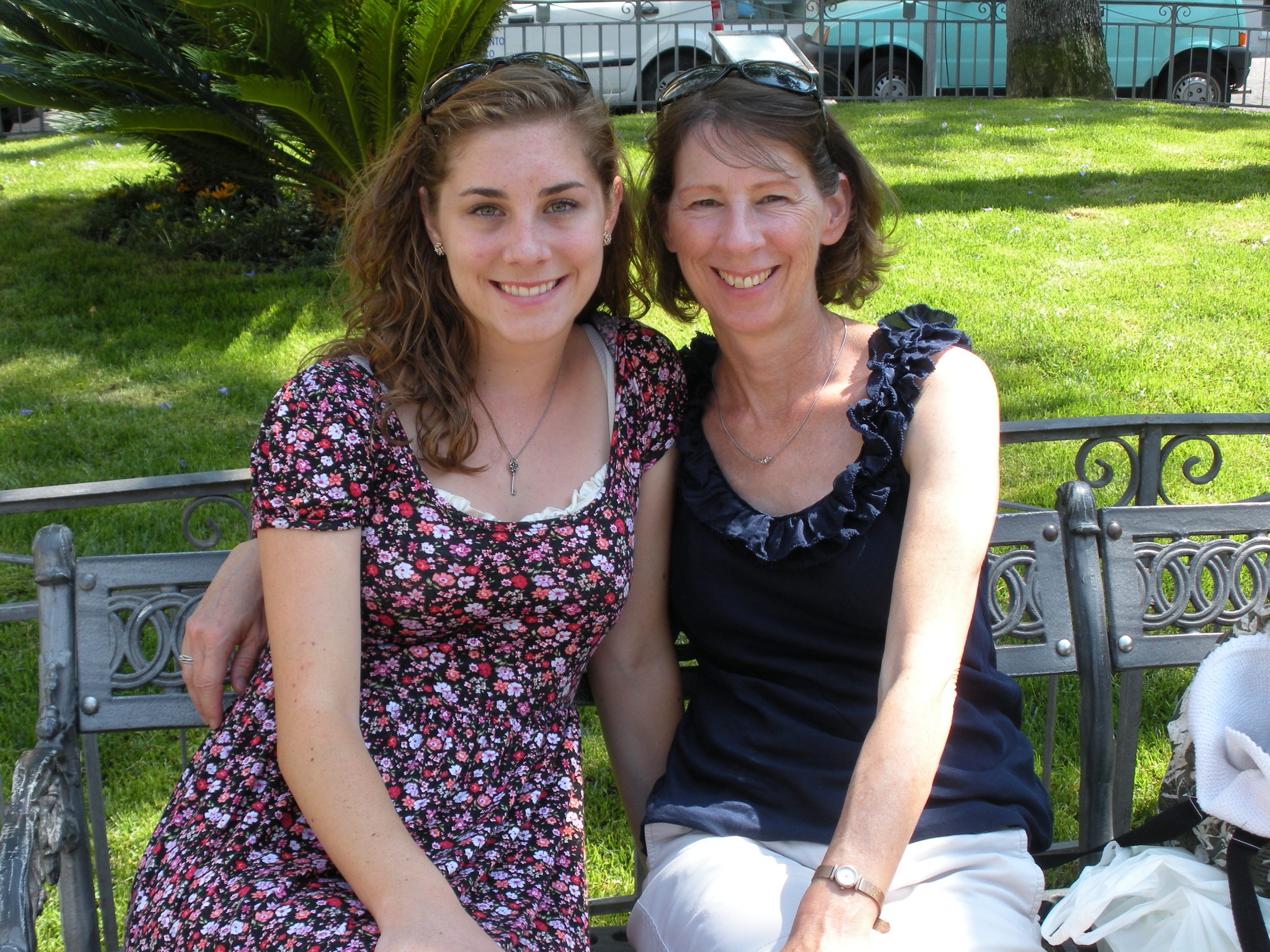How Lynch Syndrome Has Affected My Life
By Joan Rush
I do not have Lynch Syndrome, but that does not mean I don’t live with the effects of Lynch Syndrome every day. My daughter, Jacqueline, passed away at the very young age of 23 from colorectal cancer caused by a heredity genetic mutation called Lynch Syndrome. My husband and Jacqueline’s father, Allen, also has Lynch Syndrome.
We only learned about Lynch Syndrome while our daughter was undergoing cancer treatment. After Jacqueline tested positive for Lynch Syndrome, we discovered the gene mutation was on her father’s side of the family. Allen, her dad, tested positive also. Had we known there was a history of Lynch Syndrome in the family, Jacqueline’s story could have had a better outcome.
December 23, 2010 was the day that changed our lives as we knew them. Our journey of learning about Lynch Syndrome was just beginning.
Jacqueline had symptoms from age 16 - 20 (rectal bleeding, constipation and abdominal pain). Though these are common symptoms of colorectal cancer (CRC), she was not properly diagnosed.
Jacqueline finally received a colonoscopy during her sophomore year of college. The gastroenterologist uttered three words no parent ever wants to hear. “She has cancer.” But the next three words he said were even more horrifying: “And it’s big.”
I couldn’t even comprehend those words. My beautiful 20-year old daughter has colorectal cancer? As the doctor walked away, I stood there unable to breathe or move. Had I heard right? How can anyone so young have colorectal cancer? The news numbed my mind, yet a flood of thoughts simultaneously broke through. How do I tell Jacqueline? Is she going to die? Oh, please don’t let her die! Jacqueline, Allen and I sat in the room with the doctor listening; barely comprehending. Allen and I were speechless, but Jacqueline bravely asked the question we were afraid to ask. “Am I going to die?”
I tell this story so that others can learn from mistakes that were made along this journey. We took the word of medical professionals who believed Jacqueline was too young for colorectal cancer. The fact that Jacqueline’s paternal grandfather died from colon cancer at age 53 did not raise a red flag for her doctor.
We should have pressed her doctor to order a colonoscopy. Tragically, one missed diagnosis after another cost Jacqueline precious time. In retrospect, had Jacqueline’s cancer been detected in high school she would have had a chance of being treated successfully. Tragically, Jacqueline passed away at the age of 23.
Unfortunately, Jacqueline’s story does not stand alone. Cancer symptoms in young people should not be dismissed. We now know that you are never too young to get any type of cancer. Even today, many doctors are not aware of Lynch Syndrome.
1. It’s important to know your family history of cancer
Never rely solely on what you know about your family history. Sometimes, information is not known about the cause of deaths through the generations, people are reluctant to talk about cancer, or records just don’t exist. What we knew of Allen’s and my family histories did not suggest there was Lynch Syndrome in either family.
2. Be your own advocate
If you suspect something is wrong, make sure you are heard. If a doctor says you are too young to get a certain cancer, know that you are never too young. Lynch Syndrome was given its name in 1984, but the specific genes were not identified until the mid 1990’s. Lynch Syndrome was rarely included in medical school curricula until the early 2000’s. As a result, many practicing physicians who attended medical school before then have limited exposure to or knowledge of Lynch Syndrome.
3. Know your genetic destiny
Be proactive with your health. Knowing your genetic destiny can save your life. It is not something to fear, but a powerful instrument. With the medical expertise, genetic knowledge, and cancer screening that exists today, we have the tools to save lives that didn’t exist in prior years. Having Lynch Syndrome can change the way your cancer is treated. New immune checkpoint inhibitors are game-changing progress in the treatment of Lynch Syndrome associated tumors.
Losing our daughter, Jacqueline, is an incalculable, devastating loss. Her beautiful life, her dreams and aspirations, the impact she would continue to make on the world were tragically cut short because we didn’t have the knowledge we needed. Jacqueline deserved a longer life on this earth and so do you.
While Jacqueline’s life was not saved, we are determined to save the lives of others. This is what Jacqueline wanted us to do. Help us get the word out about Lynch Syndrome so that people can understand how frequently this gene mutation occurs. Had Jacqueline lived, this is what she would be doing with us—leading the way. That’s just who she was.

